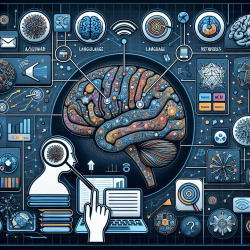Introduction
The release of the 11th Revision of the International Classification of Diseases (ICD-11) by the World Health Organization (WHO) marks a pivotal moment in mental health classification, particularly concerning mental, behavioral, and neurodevelopmental disorders. This comprehensive update aims to enhance clinical utility and global applicability, offering a robust framework for practitioners worldwide. As professionals dedicated to improving child outcomes, it is crucial to understand these changes and leverage them in practice.
Key Changes in ICD-11
ICD-11 introduces significant modifications to the classification of neurodevelopmental disorders, aligning closely with the DSM-5. Notable changes include the consolidation of autism spectrum disorders (ASD) into a single category with specific specifiers, recognizing the coexistence of ASD and ADHD, and updating terminologies such as replacing 'mental retardation' with 'disorders of intellectual development'. These updates reflect current scientific understanding and aim to improve diagnostic accuracy and treatment outcomes.
Implications for Practice
For practitioners, these changes offer several opportunities:
- Enhanced Diagnostic Precision: The refined categories and specifiers allow for more precise diagnoses, facilitating tailored interventions that address the unique needs of each child.
- Integration of Evidence-Based Interventions: The focus on global applicability encourages the use of evidence-based practices that can be adapted to various cultural and clinical settings.
- Improved Collaboration: The alignment with DSM-5 fosters better communication and collaboration among professionals across different disciplines and regions.
Encouraging Further Research
While ICD-11 provides a solid foundation, it also highlights areas where further research is needed. Practitioners are encouraged to engage in research initiatives that explore the clinical utility of new diagnostic categories and specifiers. Such efforts will contribute to refining these classifications and improving therapeutic outcomes for children.
Conclusion
The ICD-11 represents a significant step forward in the classification of mental, behavioral, and neurodevelopmental disorders. By embracing these changes, practitioners can enhance their diagnostic and therapeutic capabilities, ultimately leading to better outcomes for children. As we continue to evolve our practices, let us remain committed to data-driven decisions and evidence-based interventions.
To read the original research paper, please follow this link: Mental, behavioral and neurodevelopmental disorders in the ICD-11: an international perspective on key changes and controversies.










